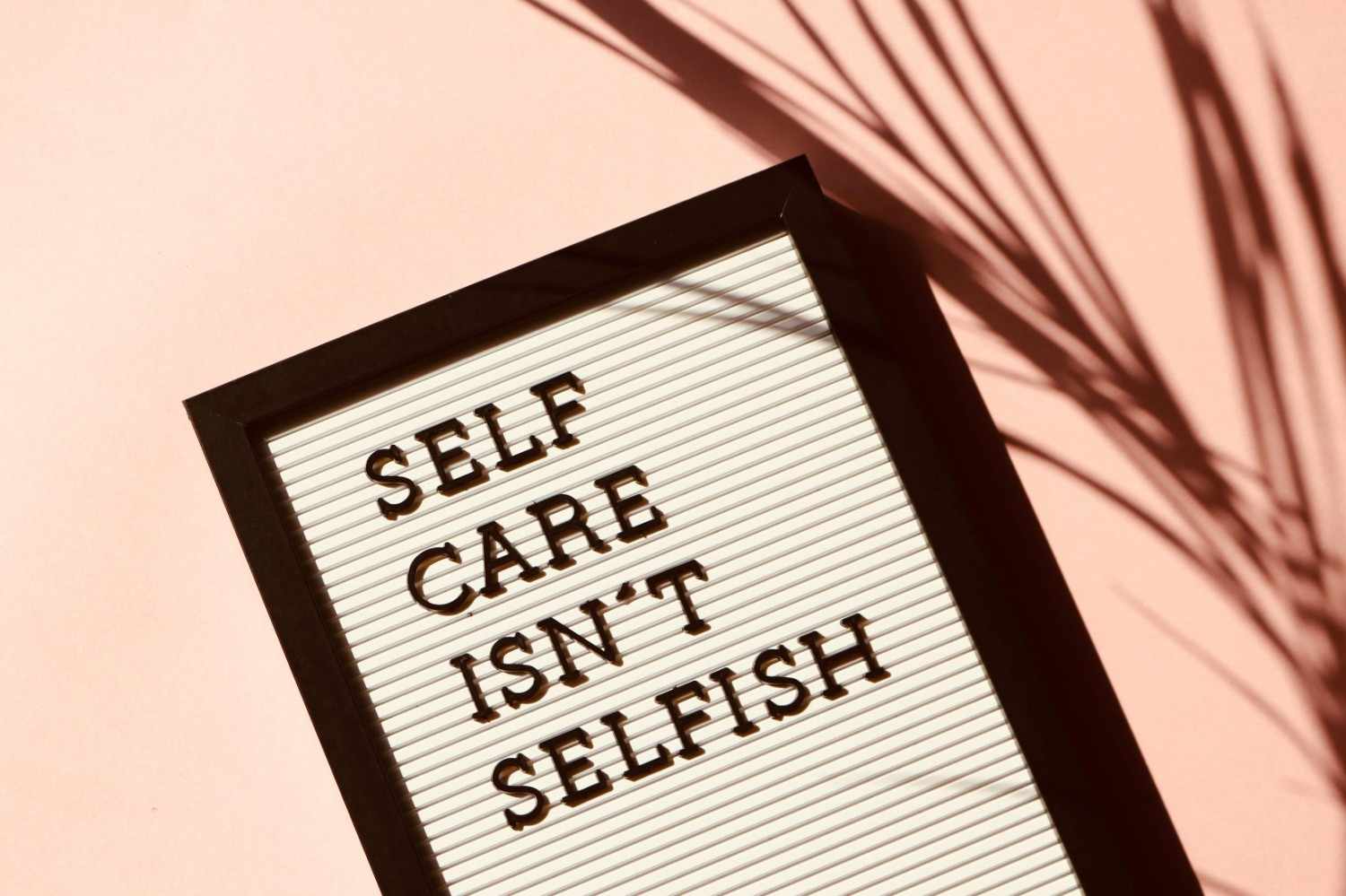Key Points
- The relationship you have with yourself is the "blueprint" for your romantic partnerships; it sets the standard for how you expect to be treated and what you are willing to accept (1).
- A lack of self,love often leads to codependent behaviors, such as seeking constant validation, having poor boundaries, and an excessive fear of abandonment, which strain a relationship (2).
- Healthy self,love is the foundation for "interdependence," a dynamic where two whole, emotionally secure individuals choose to be together, rather than needing each other to feel complete.
- Your internal self,perception acts as a "filter" that colors your interpretation of your partner's actions. Low self,worth can cause you to perceive neutral events as rejection or criticism.
- Cultivating self,love through practices like those discussed in Embracing Imperfections and Daily Affirmations is not selfish; it is the essential work required to show up as a healthy, loving partner.
Introduction: The Blueprint Within
We are raised on a romantic myth, a story woven into our fairy tales, films, and pop songs: the idea of finding a partner who "completes" us. It is a beautiful sentiment, but it is built on a flawed and fragile premise. The foundation of a truly healthy, resilient, and deeply intimate partnership is not built on finding your missing half. It is built by two "whole" individuals choosing to share their lives, not out of a desperate need to be fixed, but out of a joyful desire to connect.
The most significant and often overlooked truth of love is that the relationship you have with yourself sets the blueprint for every other relationship you will ever have. It dictates the terms of engagement, defines your boundaries, and calibrates your expectations for love, respect, and kindness. You cannot build a stable house on a shaky foundation, and you cannot build a healthy partnership on a foundation of self,doubt and low self,worth. This article, by psychologist Dr. Anya Sharma, will explore that foundational connection. We will deconstruct the practical ways your self,perception affects your interpersonal dynamics and show why the journey of self,love is not a selfish pursuit, but the most generous and essential work you can do for the health of your relationships. All information is current as of September 14, 2025, at 11:07 AM GMT.
The Mirror Effect: How Your Inner World Shapes Your Relational Reality
Your relationship with yourself acts as a powerful, though often subconscious, mirror. The way you treat yourself, speak to yourself, and feel about yourself is reflected back in the dynamics of your romantic partnerships. This happens in several key ways.
The Standard of Treatment
The level of love, respect, and compassion you show yourself becomes your "default setting" for what you believe you deserve from others. If your inner world is defined by a harsh inner critic and a lack of self,care, you are more likely to tolerate criticism, neglect, or poor treatment from a partner. It feels familiar. Conversely, when you treat yourself with consistent kindness and respect, a partner's disrespectful behavior feels jarring and unacceptable. It violates the established standard. You subconsciously teach people how to treat you by how you treat yourself.
The Filter of Perception
Your core beliefs about your own worthiness create a powerful "perceptual filter" through which you interpret your partner's words and actions. Consider this scenario: Your partner says they need a quiet evening alone after a stressful week.
- The filter of low self,worth might interpret this as: "They are tired of me. I am too much. They are pulling away because I did something wrong." This leads to anxiety, seeking reassurance, and potentially picking a fight.
- The filter of healthy self,worth is more likely to interpret this as: "They had a hard week and need to recharge. This has nothing to do with me. I'm glad they are taking care of themselves." This leads to understanding, empathy, and a peaceful evening.
The event is the same, but the internal experience is radically different. A lack of self,love makes you vulnerable to misinterpreting neutral events as personal attacks or signs of rejection, creating conflict where none needs to exist.
From Codependency to Interdependence: The Healthiest Shift
One of the most profound ways self,love impacts relationships is by enabling a shift from a "codependent" dynamic to an "interdependent" one.
The Nature of Codependency
Codependency is a relational pattern where one or both partners have an excessive reliance on the other for their sense of self and emotional well,being. It is often rooted in a deep,seated fear of abandonment and a feeling of incompleteness on one's own. Key features include:
- An intense need for approval and validation from the partner.
- Difficulty setting and maintaining healthy boundaries.
- A tendency to sacrifice one's own needs and desires to please the partner.
- A sense of anxiety or panic when apart from the partner.
In this dynamic, the relationship is built on "need." It is like two half,empty cups trying to fill each other up, an exhausting and ultimately unsustainable process that often leads to resentment and control.
The Power of Interdependence
Interdependence, on the other hand, is the dynamic of two emotionally whole and autonomous individuals who "choose" to be in a partnership. They do not need each other to feel worthy or complete, but they share their lives to enhance each other's experience. This is the healthiest and most resilient form of connection. Key features include:
- A strong sense of individual identity and self,worth.
- Clear, respectful boundaries that are mutually understood.
- The ability to function autonomously, with personal hobbies and friendships.
- A relationship built on mutual support, respect, and the "choice" to be together.
Self,love is the bridge from codependency to interdependence. When you learn to validate yourself, regulate your own emotions, and feel complete on your own, you enter a relationship not as a beggar seeking scraps of approval, but as an equal partner offering the overflow of your own well,being.
The Four Pillars of Self-Love in a Partnership
Cultivating self,love builds specific skills and capacities that are essential for a healthy relationship. These can be thought of as four foundational pillars.
Pillar 1: Healthy Boundaries
Boundaries are the invisible lines that define where you end and your partner begins. They are not walls to keep your partner out; they are the fences that protect the garden of your own well,being. Setting a boundary is an act of profound self,respect. It is saying, "I love you, and I also love me. Therefore, this is what I need to feel safe and respected." A person with low self,love often struggles with boundaries for fear that saying "no" will lead to rejection or abandonment. A person with healthy self,love understands that their needs are valid and that a loving partner will respect them. This is a core concept we also explored in Balancing Independence and Togetherness.
Pillar 2: Emotional Regulation
When you do not have a strong, compassionate relationship with yourself, you often look to your partner to manage your emotional state. You expect them to be the primary source of your happiness, the main soother of your anxiety, and the sole fixer of your bad moods. This is an immense and unfair burden to place on another person. Self,love involves developing "emotional sovereignty," the ability to sit with your own feelings, to self,soothe, and to take responsibility for your own happiness. This allows your partner to be a "supporter" of your emotional well,being, not the "source" of it.
Pillar 3: Acknowledging Worthiness
At a deep level, you cannot accept a love from someone else that you do not believe you deserve. If your core belief is "I am unworthy," you will find ways to sabotage a healthy, loving relationship. You might push your partner away, constantly test their love, or unconsciously pick partners who confirm your negative self,view. Building a foundation of self,worth allows you to actually "receive" the love your partner is offering. It allows you to trust that their affection is genuine, a key component in Building Trust.
Pillar 4: Authentic Vulnerability
True intimacy is not possible without vulnerability, the courage to be seen for who you truly are, imperfections and all. This is terrifying if you do not accept yourself. A lack of self,love leads to wearing a mask in a relationship, to constantly performing in an effort to be who you "think" your partner wants you to be. It is exhausting and creates a barrier to genuine connection. Self,acceptance gives you the courage to take off the mask, to share your fears and your flaws, and to trust that you are lovable just as you are.
Comparison: Relationship Dynamics With and Without Self-Love
| Aspect of Relationship | Fueled by Low Self-Love | Fueled by Healthy Self-Love |
|---|---|---|
| Conflict Style | Often becomes personal and defensive. Criticism is perceived as an attack on one's worth. High drama and difficulty repairing. | Focuses on the issue, not the person ("us vs. the problem"). Able to listen without personalizing and repair more quickly, using skills from Effective Communication. |
| Boundaries | Boundaries are weak, blurry, or nonexistent. A tendency to merge, losing one's sense of self. | Boundaries are clear, flexible, and respectfully communicated. A strong sense of "me" and "you" creates a healthier "we." |
| Source of Validation | Primarily external. Relies heavily on the partner for reassurance, compliments, and a sense of worth. | Primarily internal. Appreciates the partner's support but does not depend on it for their core sense of value. |
| Intimacy | Often shallow or performance,based. Fear of being "truly seen" prevents deep vulnerability. | Deep and authentic. The safety of self,acceptance allows for genuine vulnerability and emotional nakedness. |
| Response to Partner's Growth | Can feel threatened by the partner's personal growth, success, or independence, fearing it will create distance. | Genuinely celebrates the partner's growth and success, seeing it as an enhancement to the partnership, not a threat. |
Conclusion: The Ultimate Act of Generosity
The journey to self,love is not a prerequisite for finding a partner. Many of us find love while we are still deep in the work of learning to love ourselves. However, self,love is the essential ingredient for "sustaining" a healthy, thriving, and resilient partnership over the long term. It is the work that transforms a relationship from a source of anxiety and validation,seeking into a safe harbor of mutual respect and genuine intimacy.
Working on yourself, healing your own wounds, and learning to be a compassionate friend to yourself is the most generous thing you can do for your partner and your relationship. When you show up as a whole person, you are free to love not out of need, but out of a deep and joyful choice. You offer your overflow, and in doing so, you create a space where two people can grow, not just together, but as better, more authentic versions of themselves.








